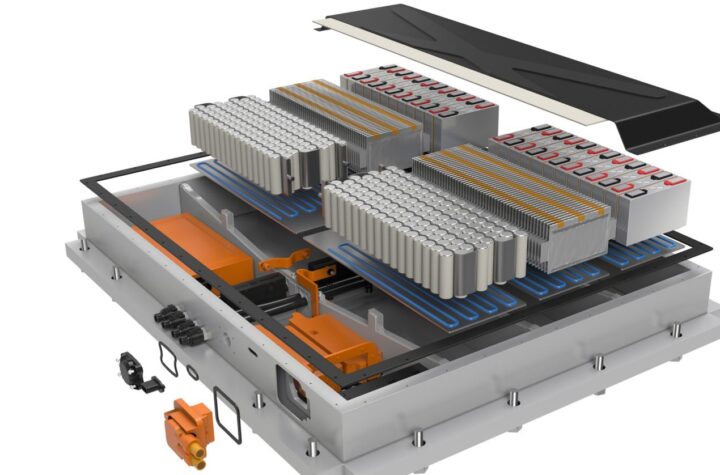
BMW wants to sell two million cars in its 100th birthday year in 2016, Dr. Norbert Reithofer, Chairman of the Board of Management of BMW AG, told the 92nd Annual General Meeting of BMW AG in Munich earlier this year.
“We want to remain profitable in the long term too. This means an EBIT margin in the range of 8 to 10% in the automotive segment. So far, hardly any other car maker has managed to sustain such a figure over an extended period of time. Our vision for the year 2020 is: to be the leading provider of premium products and premium services for individual mobility,” he added.
The BMW Group is one of the most successful manufacturers of automobiles and motorcycles in the world with its BMW, MINI, Husqvarna Motorcycles and Rolls-Royce brands. As a global company, the BMW Group operates 29 production and assembly facilities in 14 countries and has a sales network in more than 140 countries.
Collaboration and partnerships with suppliers and other auto makers are needed to turn the vision into a reality. “The BMW Group is highly innovative. That makes us an attractive collaboration partner. Which is why many manufacturers want to work with us. Toyota has paved the way for hybrid technology. We are now working together on new advances in lithium-ion cell technology. The BMW Group is the pioneer of state-of-the-art diesel technology and Toyota Europe plans to buy four-cylinder diesel engines from us,” he said.
Partnerships extend into the supplier relationships. “With the SGL Group, we opened a carbon fiber production plant in Moses Lake, in the US State of Washington in 2011. Carbon and aluminum – not steel – are the materials of the future for the automotive industry.
Automotive Industries (AI) asked Frank Wienstroth, BMW spokesman on purchasing, suppliers and logistics, how the supplier base is expected to contribute to the profitability of the company.
Wienstroth: Suppliers need to:
• Ensures that they optimise supply services and adherence to deadlines
• Provide top quality at a competitive cost: Qualitative competition is growing even tougher. Cost engineering is seen as an enabler for meeting joint cost targets.
• BMW is looking for a global supplier base with expansion of natural hedging to create a robust supply chain. This also allows hedging against currency fluctuations.
• Ensure access to innovation and new technologies
• Optimises processes for efficiency and value creation
AI: Is it BMW profitability at the cost of supplier profitability?
Wienstroth: Our demand for profitability is not at the expense of our suppliers. BMW aims to achieve maximum performance together with its suppliers. BMW’s principles of action lay the foundation for profitable and efficient business relations.
These principles include:
• Excellent quality as the prerequisite for business relationships
• We motivate our suppliers towards maximum performance in intense competition that is tough, but fair
• We demand the most efficient implementation worldwide from our suppliers and from ourselves. This also stabilises our suppliers’ business model
• Supply security can only be assured if the supplier is healthy
AI: What do you look for in new suppliers?
Wienstroth: As a responsible company, the BMW Group takes the challenge of climate change and finite fossil resources very seriously. The BMW Group aims to make new fuel-saving technologies accessible to a large number of customers as quickly as possible, and thereby contribute to sustainable mobility. We expect the same from our suppliers. We look for sustainable suppliers (from a social, environmental and economic perspective). Suppliers are also evaluated in terms of their cost attractiveness and/or best-practice level, technological leadership/innovations.
AI: How has the focus on vertical integration affected suppliers?
Wienstroth: For us, a profitable supply chain requires intense involvement with critical n-tier suppliers. Focal points are sustainability, quality and supply. Our supply chain structure requirements encourage our suppliers to examine their own supply chain.
AI: A number of suppliers are enhancing their expertise in “vertical integration”. Do you believe this to be a favourable strategy for the future?
Wienstroth: The advantage of vertical integration is that the increased latitude strengthens innovation. An adequate degree of vertical integration at a Tier 1 supplier is therefore critical to the success of a stable business model.
• Technological and commercial synergies
• Cost benefits for the consumer through the effects of fixed cost degression
• Financial stability
AI: Does the strategy create any opportunities?
Wienstroth: Control of n-tier stages is becoming increasingly important. We therefore support the move towards vertical integration – at a competitive cost. We have already implemented the options available today in our vehicles. We will continue to focus consistently on the most attractive suppliers.
Active market consolidation through technologically and financially-strong strategic investors is leading to the formation of sufficiently large and stable long-term suppliers. Technological and commercial synergies; cost benefits for the consumer through the effects of fixed cost degression and financial stability.
BMW supports this market development in principle – if it leads to stable, reliable industrial structures. A reduced supplier portfolio makes cooperation easier.












More Stories
DuPont materials science advances next generation of EV batteries at The Battery Show
How a Truck Driver Can Avoid Mistakes That Lead to Truck Accidents
Car Crash Types Explained: From Rear-End to Head-On Collisions